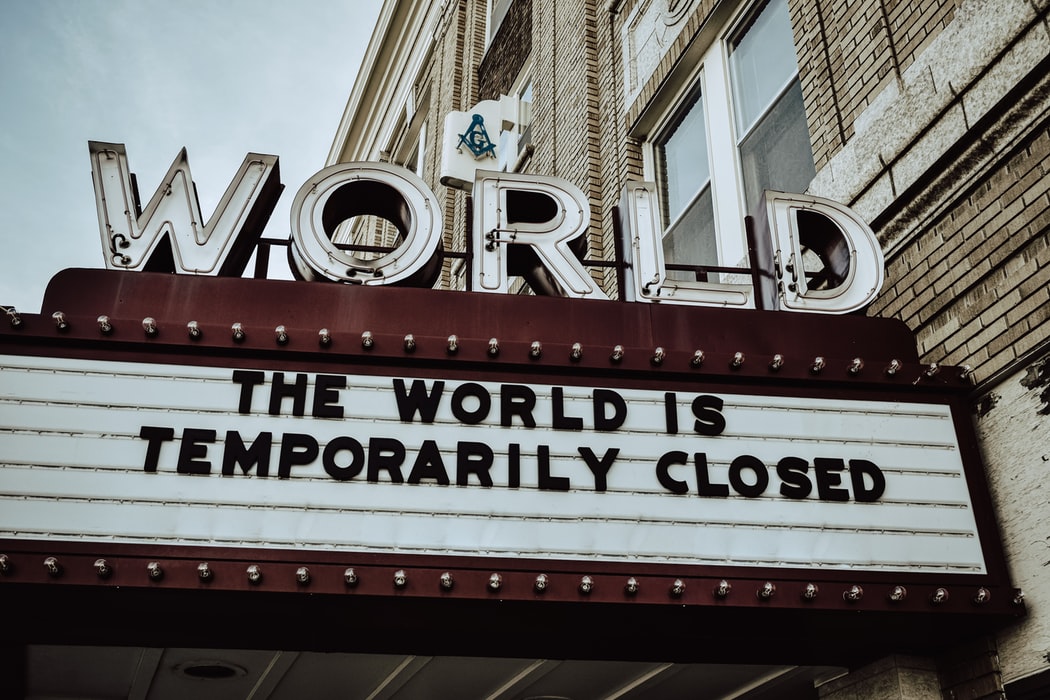2020 has been a year like no other. A microscopic virus – 10,000 times smaller than the width of a human hair – has dominated, disrupted and redefined the way we live and work.
Although the pandemic is primarily a public health emergency, its effects have been felt in all areas of public and social policy, from economic development and employment to transport and the environment. Throughout this year, our blog has reflected on the impacts of the coronavirus and the restrictions introduced to prevent its spread.
The COVID-19 knock-on
While the coronavirus pandemic has dominated the news headlines, it has also obscured the knock-on effects on the NHS. In October, we reported on the impacts of delays to preventative healthcare measures, such as screening and routine medical care in the form of pre-planned operations for long-term chronic and non-urgent conditions.
As the blog post noted, the impacts have been wide-ranging, including not only delays in care for case of physical ill health, but also for those seeking treatment for mental health conditions:
“Research suggests that incidence of mental illness during the coronavirus pandemic increased. However, the numbers of people accessing services and being referred for treatment have not increased proportionate to this.”
The ‘hidden epidemic’
Long before the coronavirus pandemic, domestic violence had become known as a ‘hidden epidemic’ in the UK. In September, our blog highlighted the unintended consequences of quarantine for domestic abuse victims.
After the UK entered lockdown in March, calls and online enquiries to the UK’s National Domestic Abuse line increased by 25%. Three-quarters of victims told a BBC investigation that lockdown had made it harder for them to escape their abusers and in many cases had intensified the abuse they received.
Despite additional government funding, the local authorities and charities which support victims of domestic violence have been struggling with the financial fallout from the pandemic. Even so, important partnerships have been formed between local government, educational institutions and third sector bodies to provide safe spaces for women and their children fleeing violence. Among these was an initiative at the University of Cambridge:
“St Catherine’s College formed a partnership with Cambridge Women’s Aid to provide over 1000 nights of secure supported accommodation during the lockdown period.“
‘Same storm, different boats’
As the recent Marmot review has stressed, the coronavirus pandemic has exposed and deepened many of the deep-rooted inequalities in our society, including gender, ethnicity and income. It has also shone a light on more recent inequalities, such as the growth of precarious employment among sections of the population.
In July, we looked at the uneven economic impact of the pandemic, focusing on the heavy price being paid by young people, women, disabled people and Black and Minority Ethnic (BAME) communities.
Women often work in the frontline of care services and have had to juggle childcare during lockdown. BAME communities are over-represented in key-worker jobs, and so were particularly vulnerable to coronavirus.
And although there has been much talk about ‘building back better’, our blog post drew attention to the observations of Dr Sally Witcher, CEO of Inclusion Scotland during a Poverty Alliance webinar:
“She asks whether indeed we should want to build back, when the old normal didn’t work for a large proportion of people, particularly those with disabilities. Dr Witcher also questions ‘who’ is doing the building, and whether the people designing this new future will have the knowledge and lived experience of what really needs to change.”
The impacts of a pandemic
Many other aspects of the impact of COVID-19 have been covered in our blog:
- How housing providers have embraced the fluidity of an emergency situation, including tackling homelessness, engaging effectively with tenants and addressing mental ill health.
- Digital healthcare solutions for those with coronavirus and for the continuity of care and day-to-day running of the NHS.
- Creating and managing a COVID-secure workplace.
- How COVID-19 is changing public transport, including an acceleration towards contactless payment and mobile ticketing.
- The additional challenges of the pandemic facing autistic children and young people.
- The impact of the coronavirus restrictions on the arts.
- The role of green new deals in tackling climate change and economic inequality as part of the post-Covid recovery.
Beyond the virus
Although the pandemic has been at the forefront of all our minds this year, The Knowledge Exchange blog has also taken the time to focus on other important issues in public and social policy:
- The significance of digital literacy for individuals and the wider economy.
- The cases for and against a shorter working week.
- The vision and reality of garden communities.
- Singapore’s approach to digital planning.
- Approaches to smart city technologies[HC2] in the UK.
- The implications of Brexit for language learning in the UK.
- Celebrating the 200th issue of Scottish Planning and Environmental Law journal.
We’ve also taken advantage of the ‘new normal’ experience of remote working to join a number of webinars, and to report back on the observations and ideas emerging from them. Most recently, our blogs have focused on a series of webinars organised by Partners in Planning, which included contributions on how the planning system can help address climate change.
Final thoughts
The health, economic and social impacts of the pandemic are likely to be long-lasting – restrictions on travel, work and socialising will continue into the spring, and insolvencies and unemployment numbers are likely to rise. And the continuing uncertainty over the UK’s new trading relationship with the European Union will generate additional challenges.
But, as a frequently difficult, often challenging and sometimes distressing year draws to a close, there is cause for optimism about 2021. Vaccines to prevent the spread of the virus have been developed with lightning speed. Across the UK people are already being vaccinated, with greater numbers set to receive the jab in the coming months.
Here at The Knowledge Exchange, we’ll continue to highlight the key issues facing public and social policy and practice as we move towards the post-Covid era.
Season’s greetings
It’s with even greater meaning than ever before that we wish all our readers a happy Christmas, and a healthy, prosperous and happy new year.
Best wishes from everyone at The Knowledge Exchange: Morwen, Christine, Heather, Donna, Rebecca, Scott, Hannah and James.
Follow us on Twitter to find out what topic areas are interesting our research team.
Share
Related Posts
Supporting residents on the decarbonisation journey: leveraging data for effective retrofit projects
As the drive towards decarbonisation intensifies, the social housing sector’s ability to collect, store and manage vast amounts of data becomes increasingly critical. With a shared goal of creating warmer, carbon-free homes, housing associations’ strategic use of data is essential ....
A recent item on BBC Radio 4’s Today programme generated an unusually high number of responses from listeners. A man who had lost his job in the financial services sector at the age of 57 described his difficulty in trying ....



